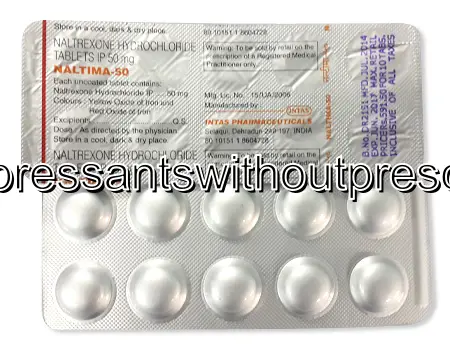Buy Naltrexone Online in New Zealand — No Prescription Needed
| Package | Dosage | Price | Price per Dose | |
|---|---|---|---|---|
| Dosage: 50mg | ||||
| 90 pill | 50mg | NZD1,657.45 | NZD18.43 | |
| 60 pill | 50mg | NZD1,139.49 | NZD19.00 | |
| 30 pill | 50mg | NZD643.33 | NZD21.43 | |
| 20 pill | 50mg | NZD457.96 | NZD22.84 | |
| 10 pill | 50mg | NZD248.05 | NZD24.86 | |

Naltrexone Description
Overview of Naltrexone
Naltrexone is a medication primarily used in the management of alcohol dependence and opioid addiction. It belongs to a class of drugs known as opioid antagonists, which work by blocking the effects of opioids in the brain. This action helps reduce the craving and pleasurable effects associated with alcohol and opioid use, supporting individuals in their recovery process.
How Naltrexone Works
The mechanism of action of Naltrexone involves binding to opioid receptors in the central nervous system. By occupying these receptors, it prevents the activation caused by opioids and reduces the rewarding feelings. When used in alcohol dependence, Naltrexone diminishes the reinforcement that encourages continued drinking, which can lead to reduced alcohol intake and improved chances of sustained sobriety.
Benefits and Effectiveness
Many patients have found Naltrexone to be an effective component of their treatment plan. It can help decrease the frequency and severity of alcohol cravings. For those struggling with opioid dependence, Naltrexone helps prevent relapse after detoxification. Clinical studies have shown that when combined with counseling and support, Naltrexone significantly improves treatment outcomes and helps patients maintain long-term abstinence.
Usage and Administration
Naltrexone is typically administered orally, often in the form of a daily tablet. The dosage depends on individual needs and the specific condition being treated. For alcohol dependence, the usual starting dose is 50 mg per day. For opioid dependence, patients are advised to complete detoxification before beginning Naltrexone to avoid precipitating withdrawal symptoms. Regular monitoring by a healthcare professional is essential to ensure safety and effectiveness.
Potential Side Effects
While Naltrexone is generally well tolerated, some patients may experience side effects. Common adverse reactions include nausea, headache, dizziness, fatigue, and joint or muscle pains. Rarely, allergic reactions such as skin rashes or swelling can occur. It is important for users to discuss any unusual symptoms with their healthcare provider promptly. Patients with liver disease should be cautious, as Naltrexone can impact liver function, requiring careful assessment before and during treatment.
Precautions and Considerations
Before starting Naltrexone, patients must be opioid-free for at least 7 to 10 days to avoid precipitating withdrawal episodes. It should not be used by individuals with acute hepatitis or liver failure. Complete honesty with healthcare providers about medication history and current health conditions is essential. Naltrexone does not address underlying psychological or social factors related to addiction; therefore, it is most effective when integrated with counseling, support groups, and behavioral therapy.
Conclusion
Naltrexone remains a valuable medication in the fight against addiction. Its ability to support abstinence by reducing cravings makes it a cornerstone of many treatment programs. However, as with all medications, it requires careful supervision and adherence to medical guidance to ensure safety and maximize benefits. Patients should always consult with qualified healthcare professionals to determine if Naltrexone is appropriate for their specific needs.
